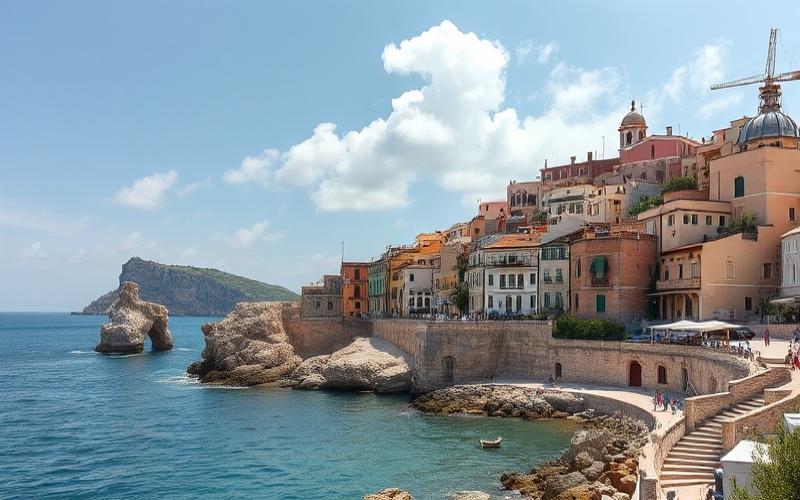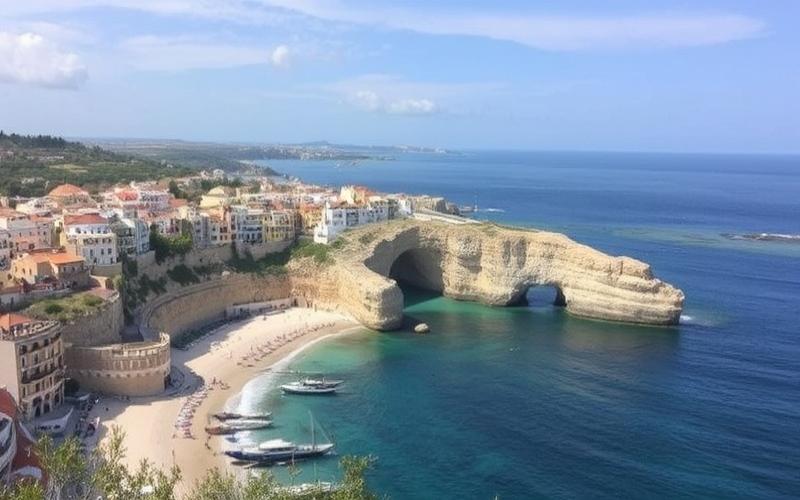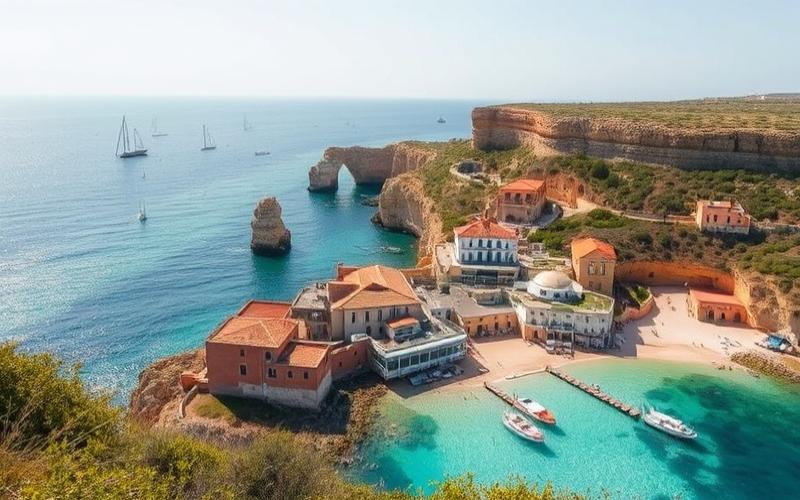
 Published on and written by Cyril Jarnias
Published on and written by Cyril Jarnias
The Mediterranean island of Malta is attracting an increasing number of foreign real estate investors thanks to its pleasant climate, quality of life, and dynamic market. However, negotiating the purchase of a property in this small country can prove complex for those unfamiliar with local specifics. Here is a comprehensive guide to help you conduct your negotiations successfully and achieve significant savings on your acquisition in Malta.
Secrets to a Winning Negotiation in Malta
Effectively negotiating the purchase of a property in Malta requires mastering certain techniques and adopting the right approach. Here are the most effective strategies to get the best price:
Do your homework beforehand
Before even starting negotiations, make sure you have an in-depth understanding of the Maltese real estate market. Analyze prices of similar properties in your area of interest, study recent and future market trends, and identify factors that could influence the property’s long-term value. The more informed you are, the stronger your negotiating position will be.
Establish a relationship of trust
In Malta, personal relationships play an important role in real estate transactions. Take the time to build a connection with the seller or real estate agent, show your genuine interest in the property and in Malta in general. This approach can give you an advantage during negotiations.
Be prepared to act quickly
The Maltese real estate market can be very competitive, especially for the most attractive properties. Make sure all your financial documents are in order and that you’re able to make an offer quickly if an opportunity arises. This responsiveness can help you get ahead of other potential buyers.
Use the property’s flaws to your advantage
If the property requires renovations or has minor drawbacks, don’t hesitate to point them out diplomatically to justify an offer below the asking price. Quantify the cost of necessary work to support your argument.
Propose an attractive package
Beyond the price, consider other elements that might interest the seller. For example, propose a lease-back period if the seller needs time to move out, or offer a shorter payment deadline if you’re able to do so.
Master the art of timing
The timing of your offer can significantly impact the negotiation outcome. If the property has been on the market for a long time, the seller might be more inclined to accept a lower offer. Conversely, if you know other buyers are interested, a quick and firm offer could give you the advantage.
Good to know:
In Malta, patience is often rewarded in real estate negotiations. Don’t rush to close the deal and be prepared to temporarily withdraw from negotiations if necessary to get better terms.
Decoding the Subtleties of the Maltese Real Estate Market
To negotiate effectively, it’s crucial to understand the specifics of the Maltese real estate market well. Here are the key points to know:
A growing market
The Maltese real estate market has experienced sustained growth for several years. According to the latest statistics, property prices in Malta increased by an average of 5.5% in 2024, with significant variations depending on the region. This upward trend can influence sellers’ expectations, but it also offers opportunities for savvy investors.
Significant regional disparities
Prices and demand vary considerably across different regions of Malta. For example, coastal areas like Sliema or St Julian’s are generally more expensive than inland regions. Understanding these disparities will allow you to adjust your negotiation strategy based on the property’s location.
The impact of tourism and foreign residents
The Maltese economy is strongly influenced by tourism and the influx of foreign residents. These factors can create upward pressure on prices, particularly in areas popular with expatriates. Take these dynamics into account in your market assessment.
The role of real estate agents
In Malta, real estate agents play a central role in most transactions. They can be a valuable source of information about the local market, but keep in mind that they typically work for the seller. Establish a good relationship with them while remaining vigilant about your own interests.
Specific regulations
Malta has specific regulations regarding property purchases by foreigners, particularly in certain designated areas. Familiarize yourself with these rules to avoid any surprises during negotiations.
Good to know:
Average property prices in Malta in 2025 are around €3,500/m² for apartments and €4,000/m² for houses, with significant variations depending on the region and property type.
Pitfalls to Avoid for Successful Negotiation
Even the most savvy buyers can fall into certain traps when negotiating a property purchase in Malta. Here are the most common mistakes to avoid:
Not conducting thorough due diligence
One of the most costly mistakes is not performing a thorough verification of the property and its legal status. Make sure to check all ownership documents, building permits, and any easements or restrictions. Engage a local lawyer specialized in real estate to assist you with this process.
Ignoring hidden costs
Beyond the purchase price, there are many fees associated with acquiring a property in Malta, such as stamp duty, notary fees, and various taxes. Don’t neglect them in your budget and use them as negotiation leverage if possible.
Underestimating the importance of language
Although English is widely spoken in Malta, some documents or discussions may take place in Maltese. Don’t assume you understand everything and don’t hesitate to use a professional translator if necessary.
Neglecting cultural aspects
Maltese culture values personal relationships and trust. An overly aggressive or impersonal approach in negotiations can be poorly received. Take the time to build relationships with the involved parties.
Rushing due to fear of missing out
FOMO (Fear Of Missing Out) can push you to make hasty decisions. Resist the pressure and take time to carefully evaluate each opportunity, even if it sometimes means passing on a deal.
Neglecting practical aspects
Before committing, make sure the property truly meets your long-term needs. Consider practical aspects like accessibility, local infrastructure, and future development projects in the area.
Good to know:
In Malta, it’s common for sellers to initially overprice their property. Don’t be discouraged by a high starting price and prepare to negotiate firmly but respectfully.
Conclusion: Your Passport to a Successful Investment in Malta
Negotiating the purchase of a property in Malta might seem intimidating at first, but with proper preparation and a well-thought-out strategy, you can achieve substantial savings while securing your dream investment.
Remember that the Maltese market, although small, offers many opportunities for savvy buyers. With average prices reaching €3,500/m² for apartments and €4,000/m² for houses, every euro saved during negotiation can make a significant difference in the long term.
- Understand the local market and its specifics in depth
- Develop a negotiation strategy adapted to the Maltese context
- Avoid common pitfalls that could compromise your investment
- Cultivate a local network to access the best opportunities
- Exercise patience and diligence throughout the process
By following these tips, you’ll be well-equipped to navigate the Maltese real estate market and negotiate the purchase of your property under the best possible conditions. Remember that each transaction is unique, and it may be wise to engage local professionals to guide you through the more complex aspects of negotiation and purchase.
Disclaimer: The information provided on this website is for informational purposes only and does not constitute financial, legal, or professional advice. We encourage you to consult qualified experts before making any investment, real estate, or expatriation decisions. Although we strive to maintain up-to-date and accurate information, we do not guarantee the completeness, accuracy, or timeliness of the proposed content. As investment and expatriation involve risks, we disclaim any liability for potential losses or damages arising from the use of this site. Your use of this site confirms your acceptance of these terms and your understanding of the associated risks.




















